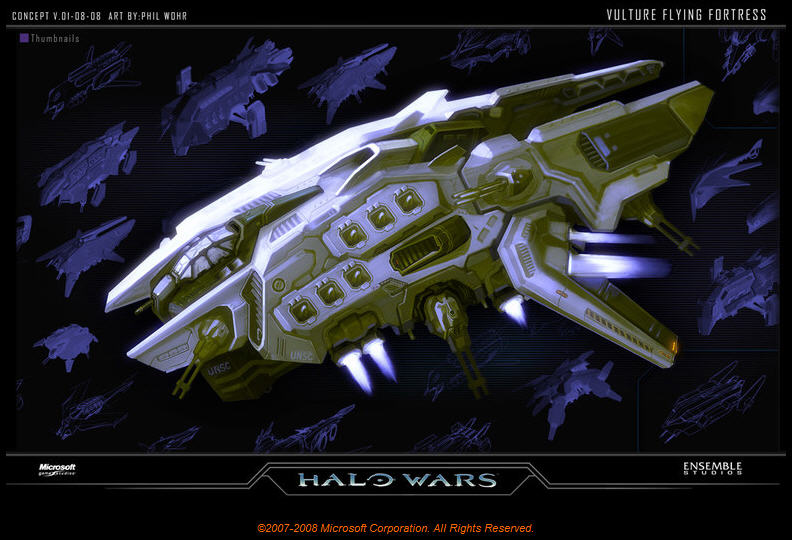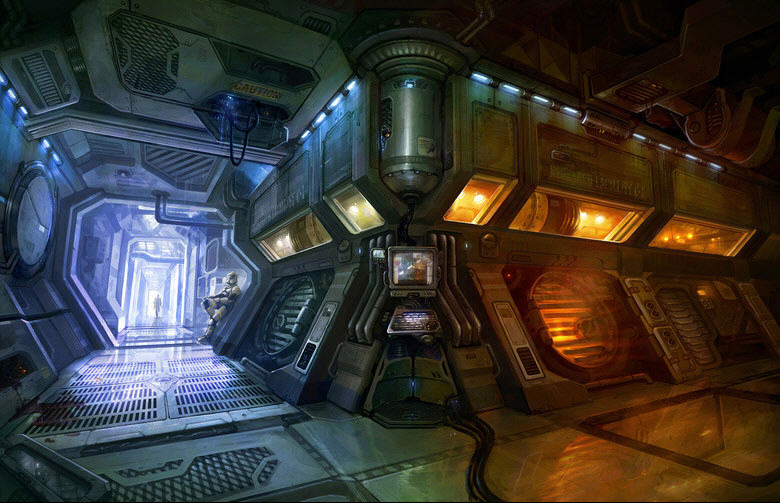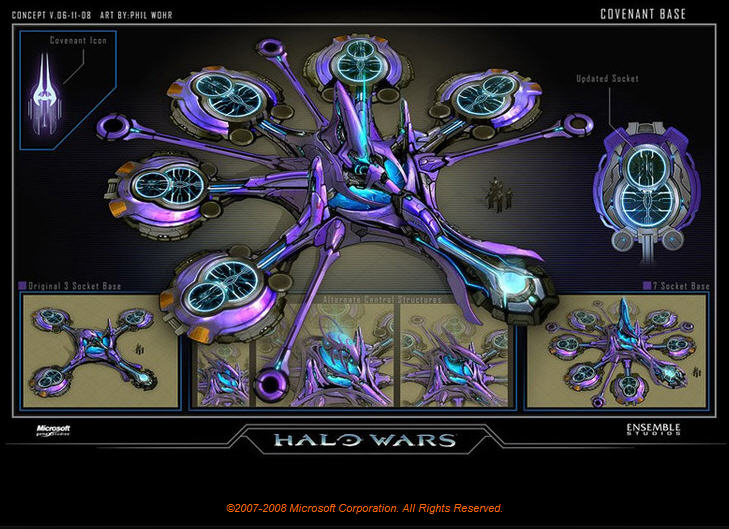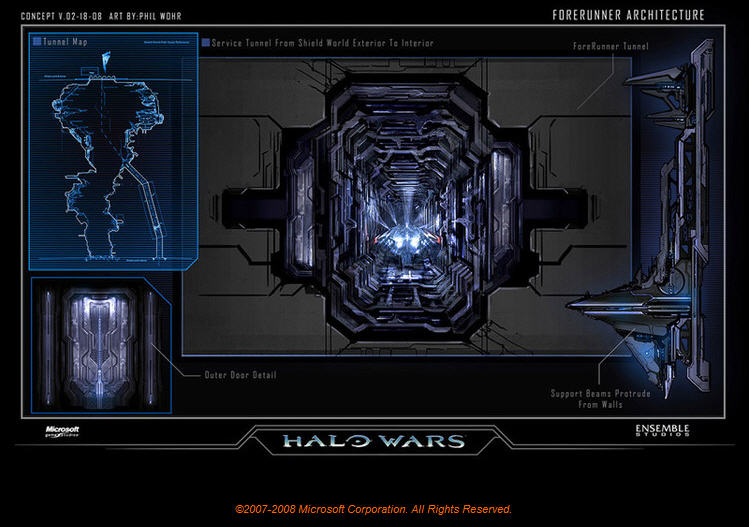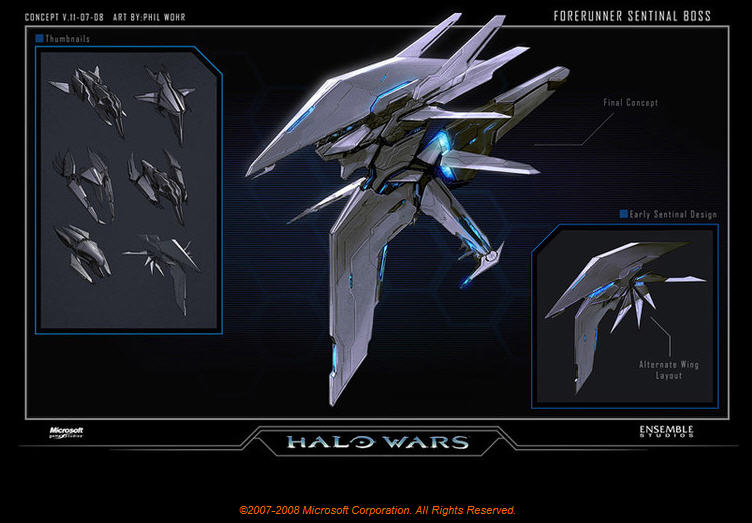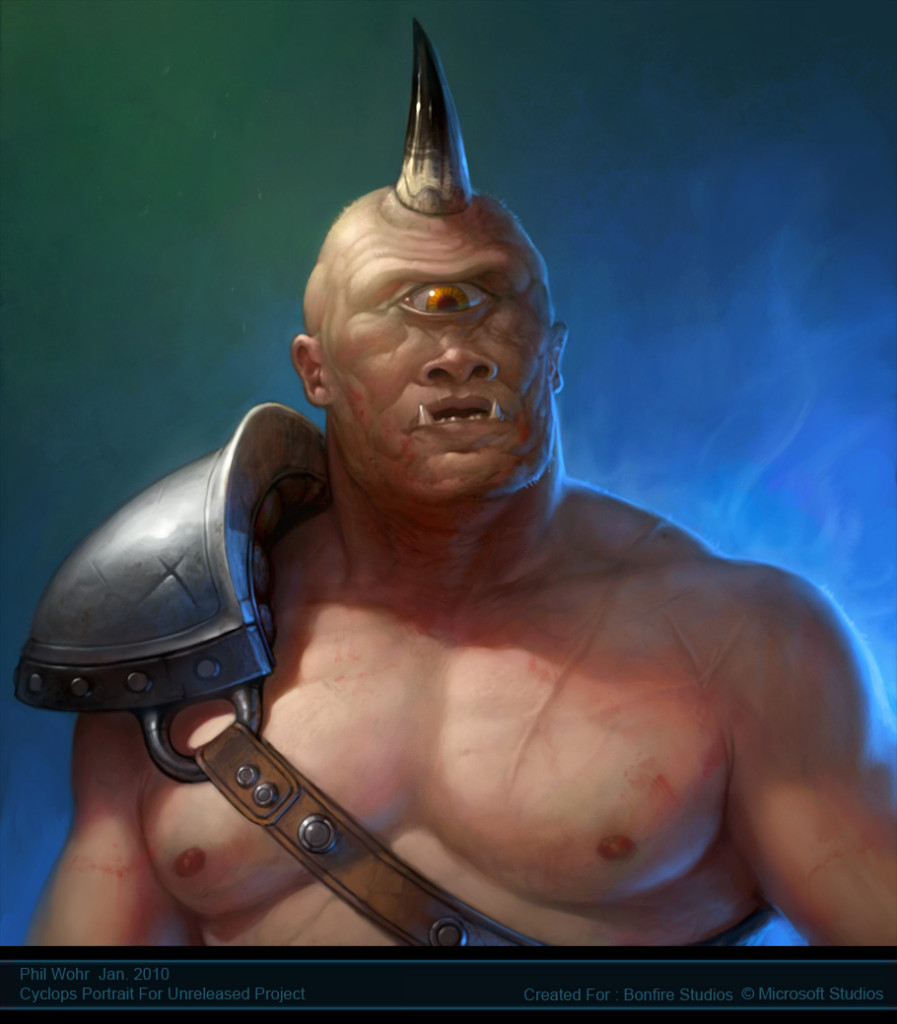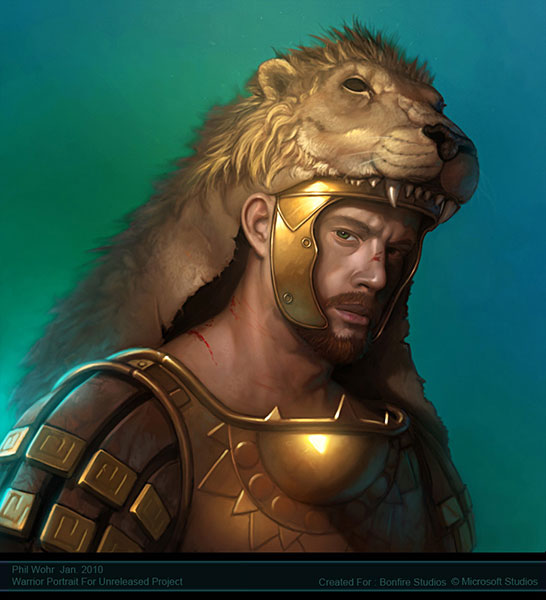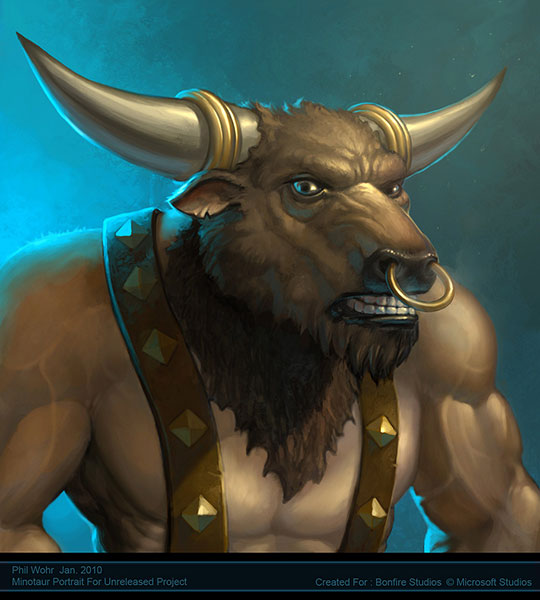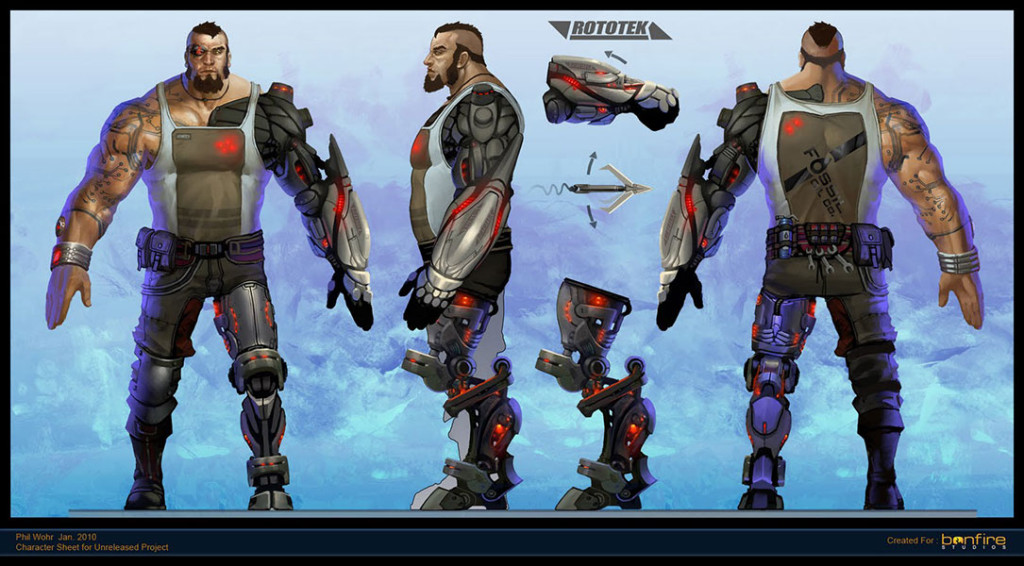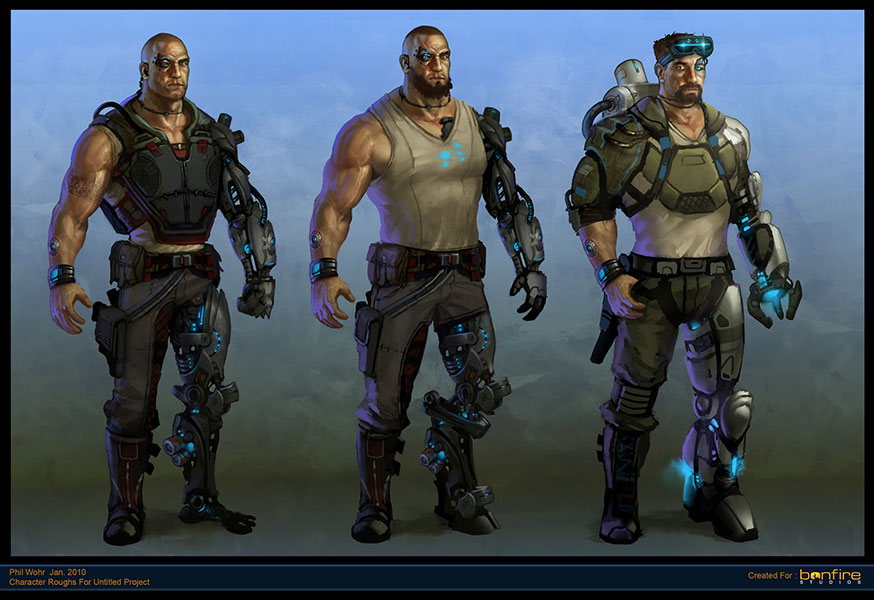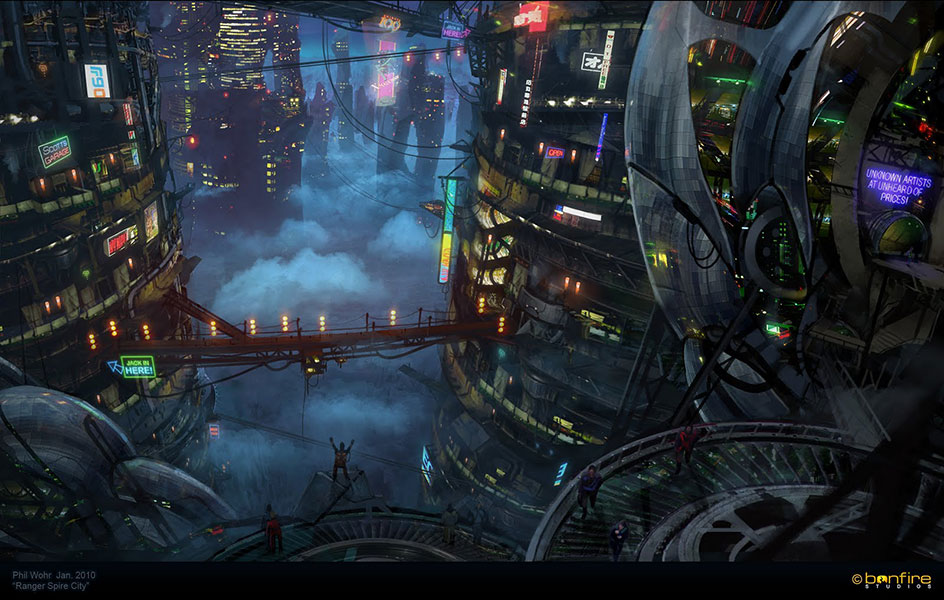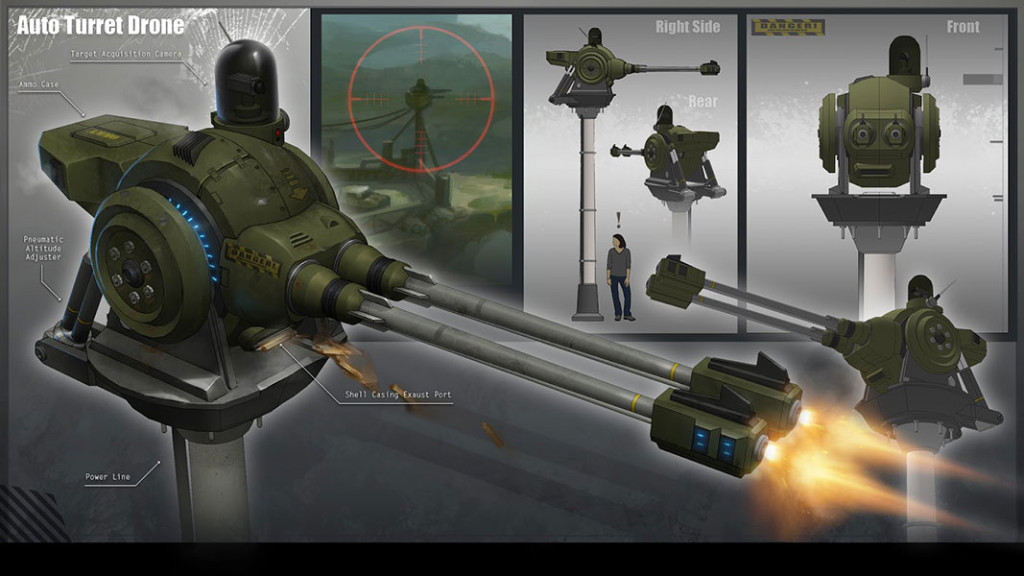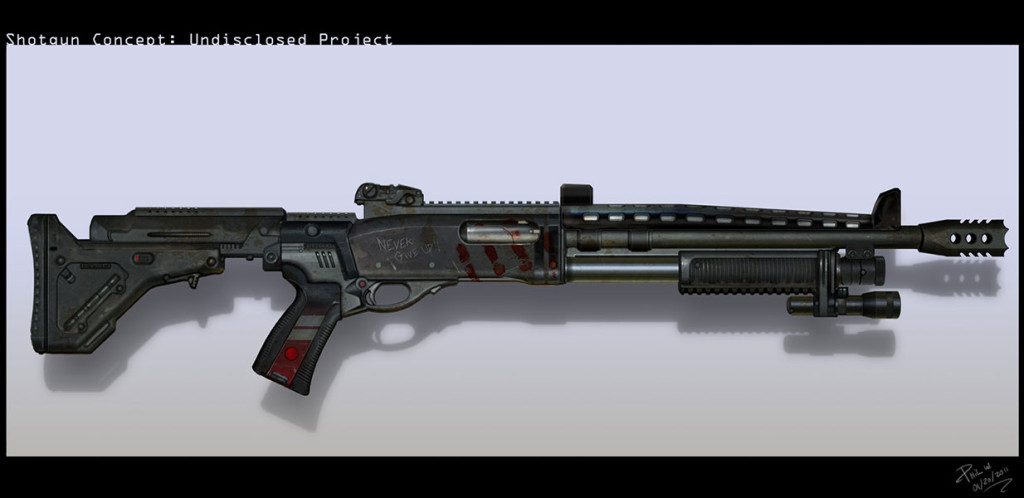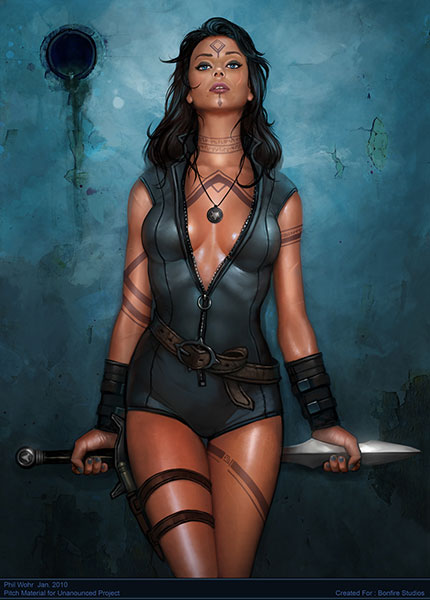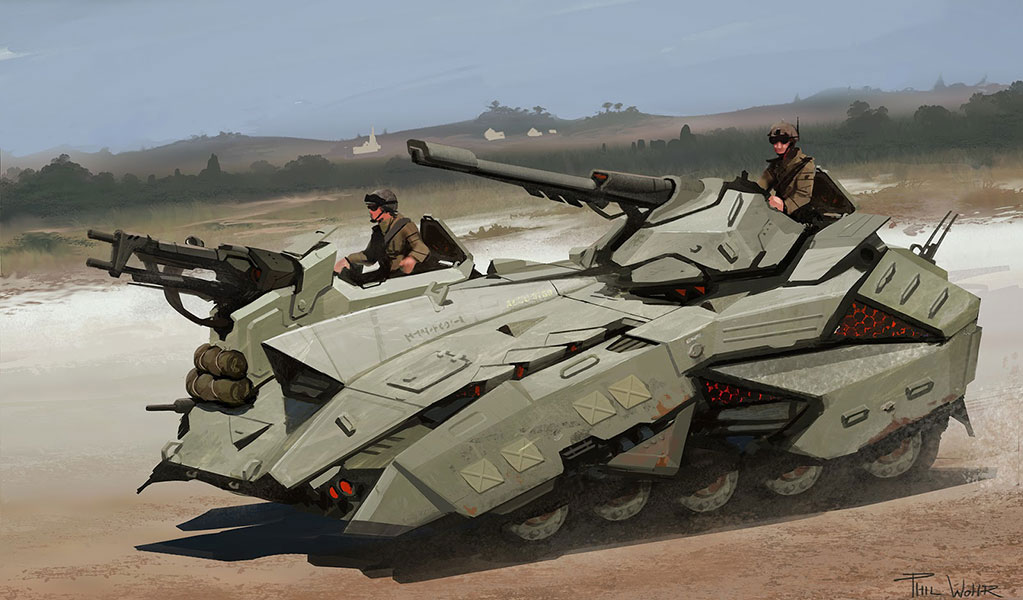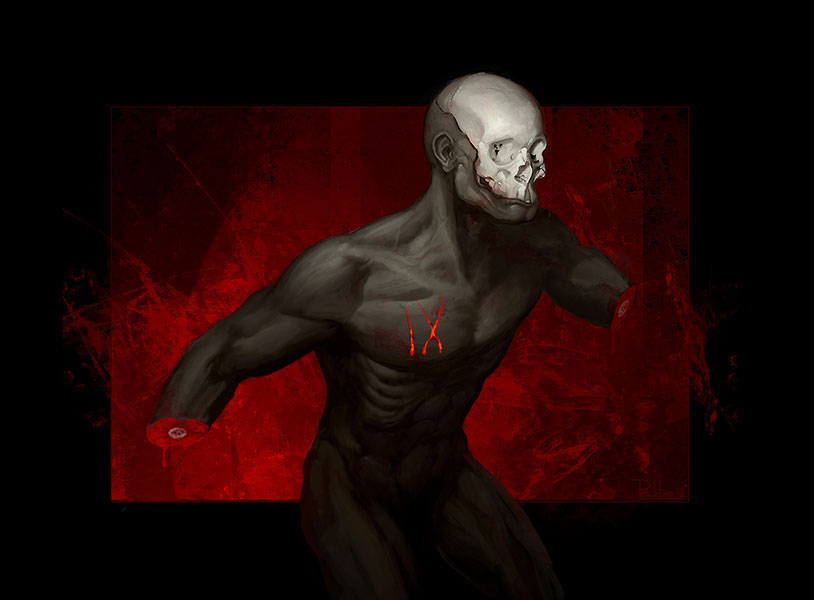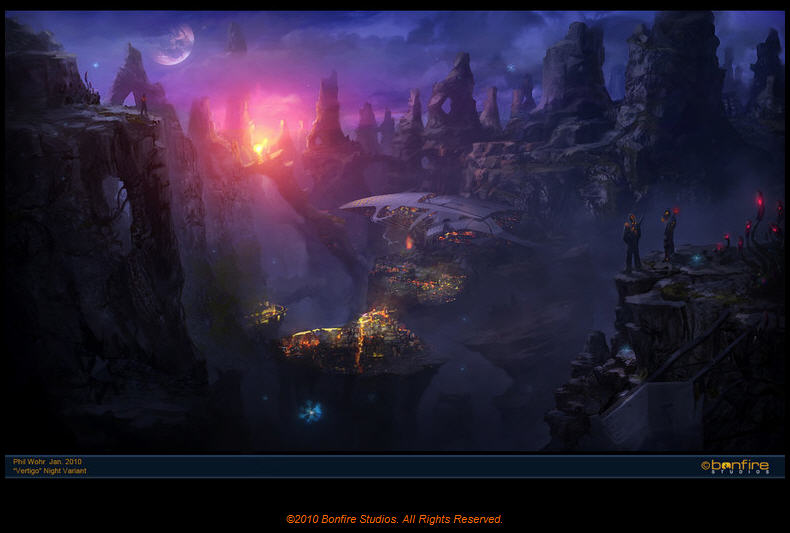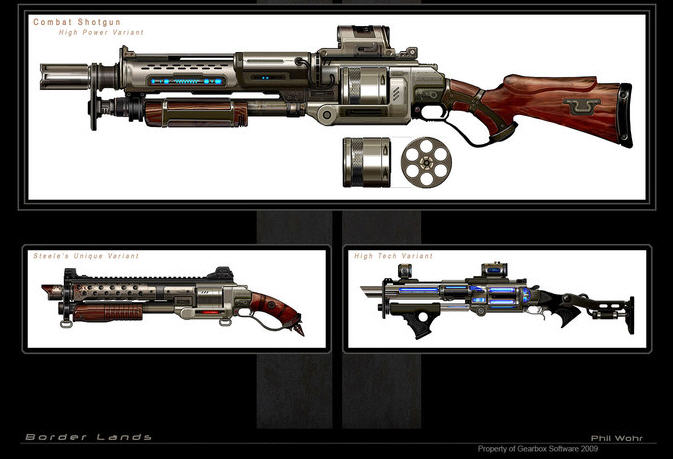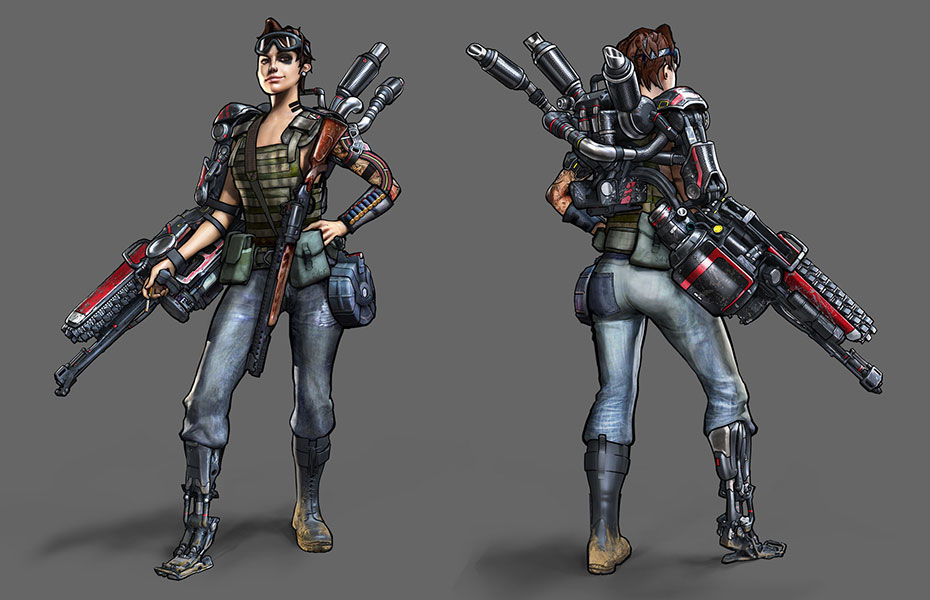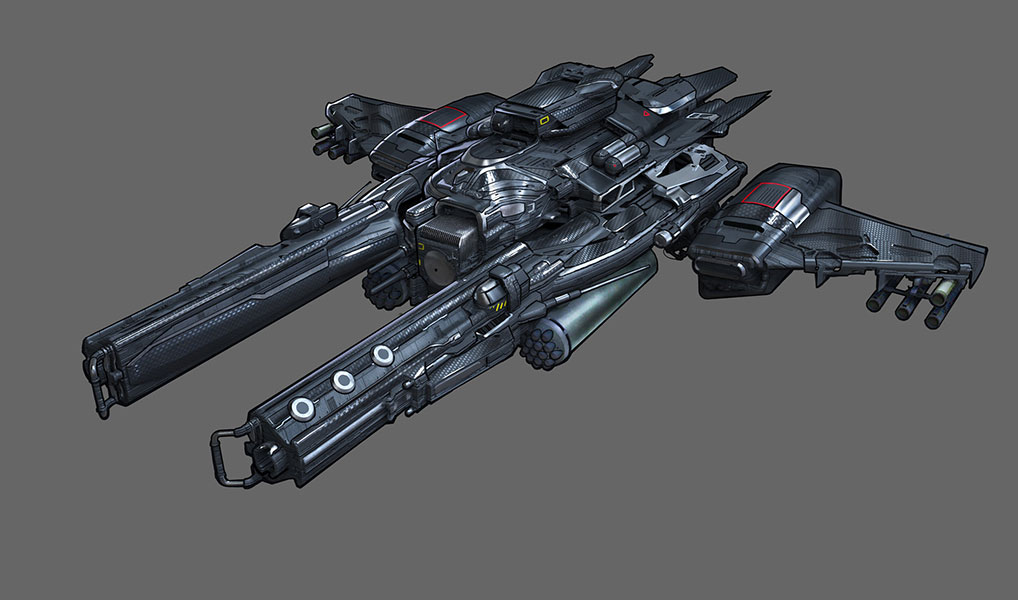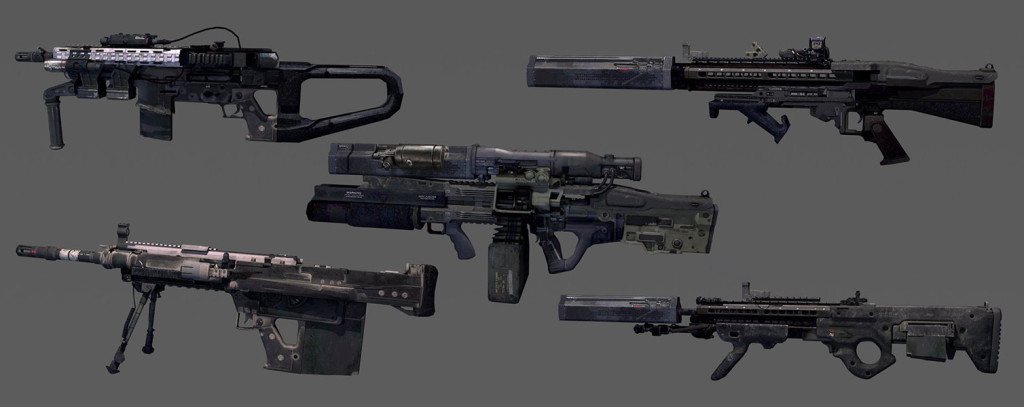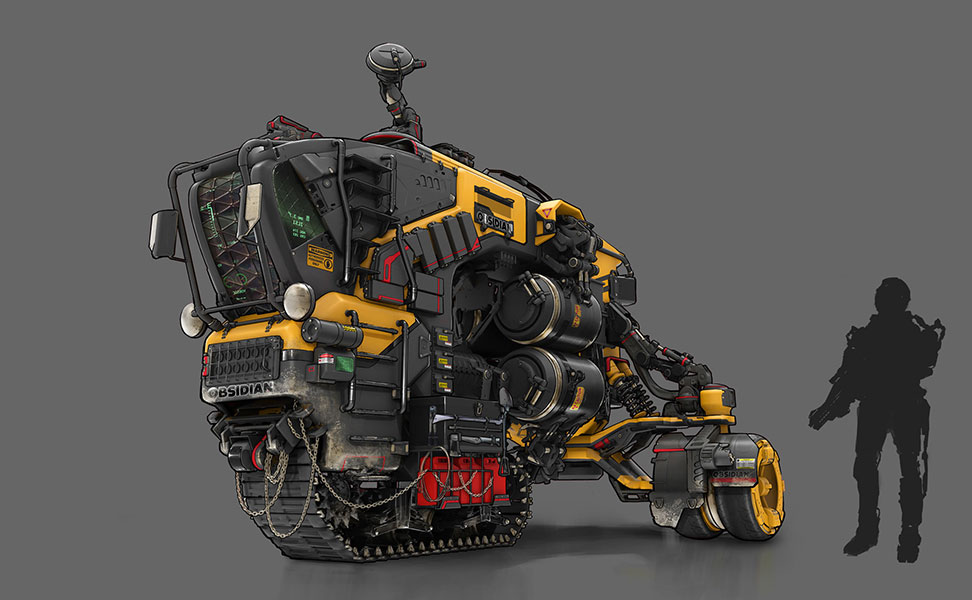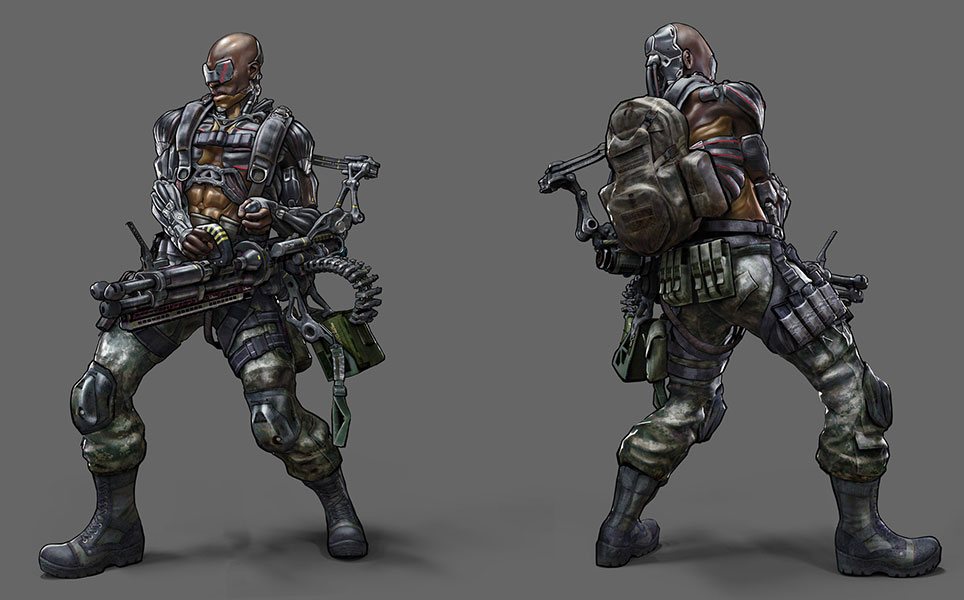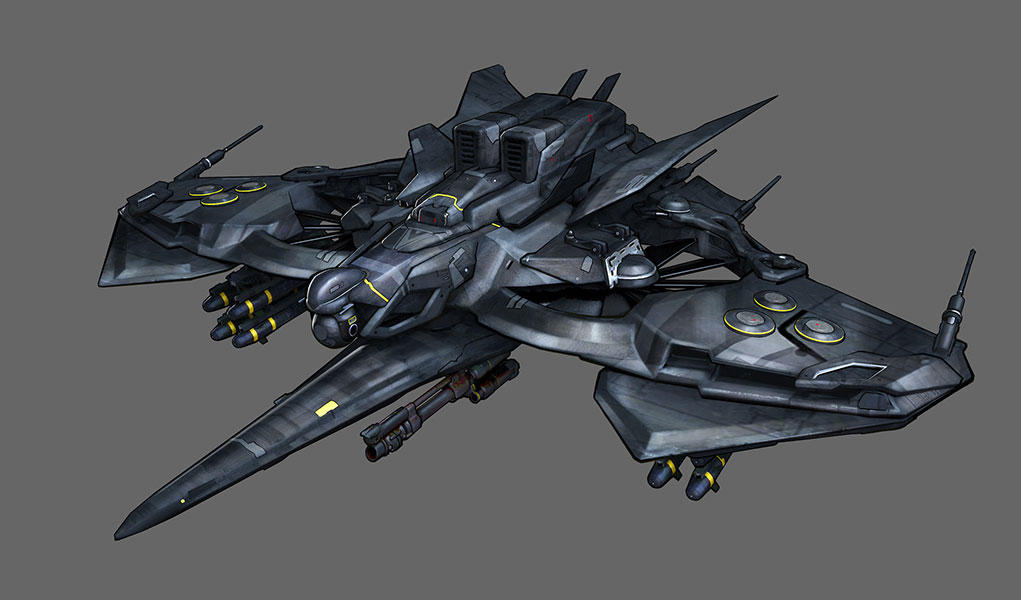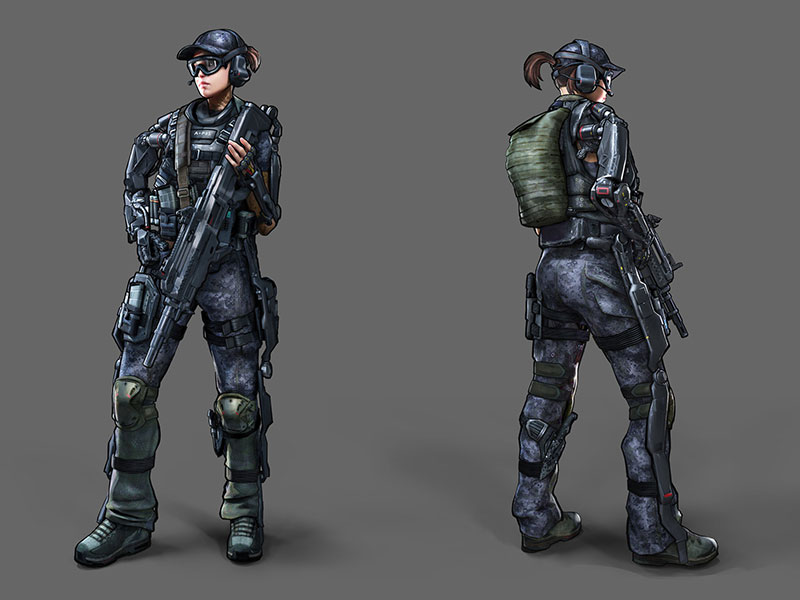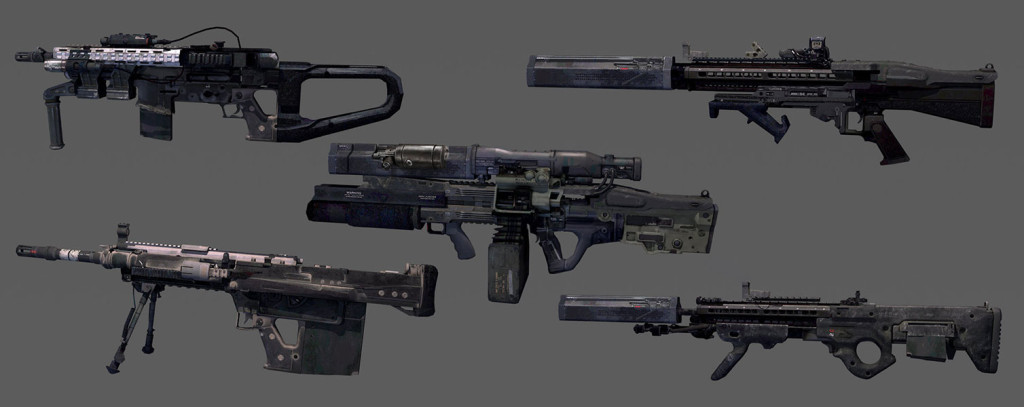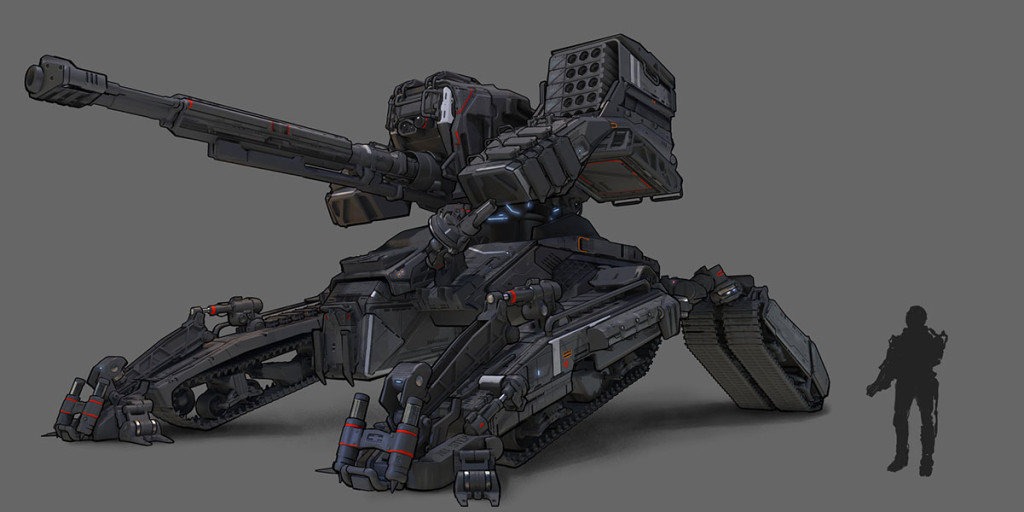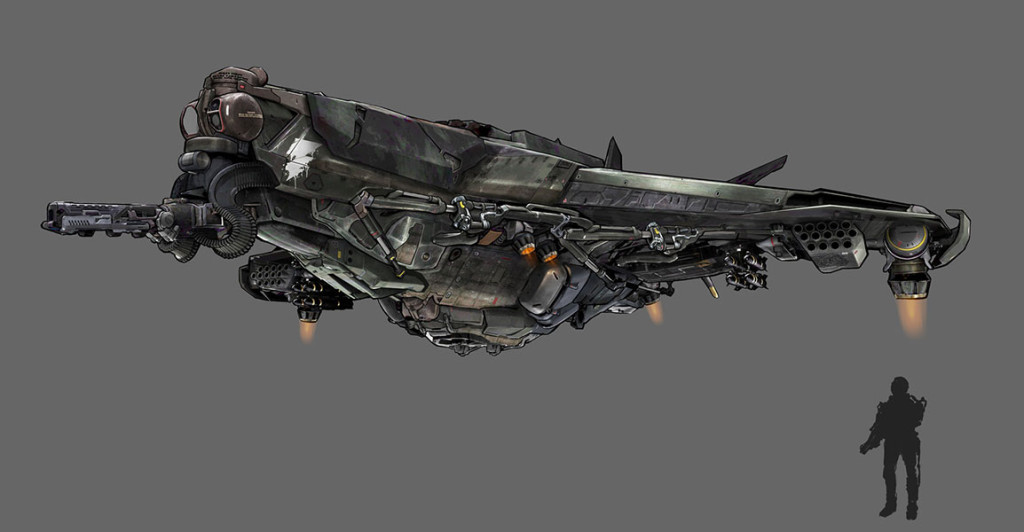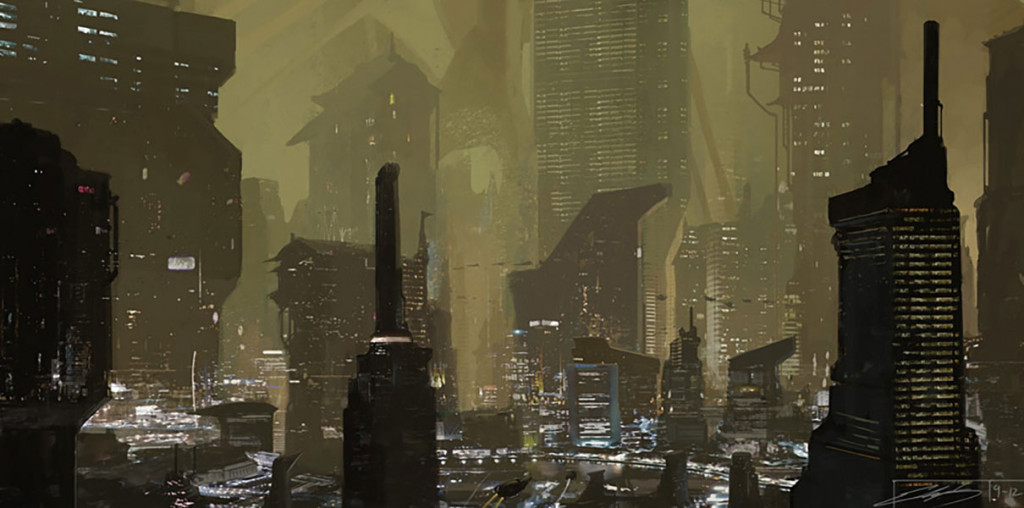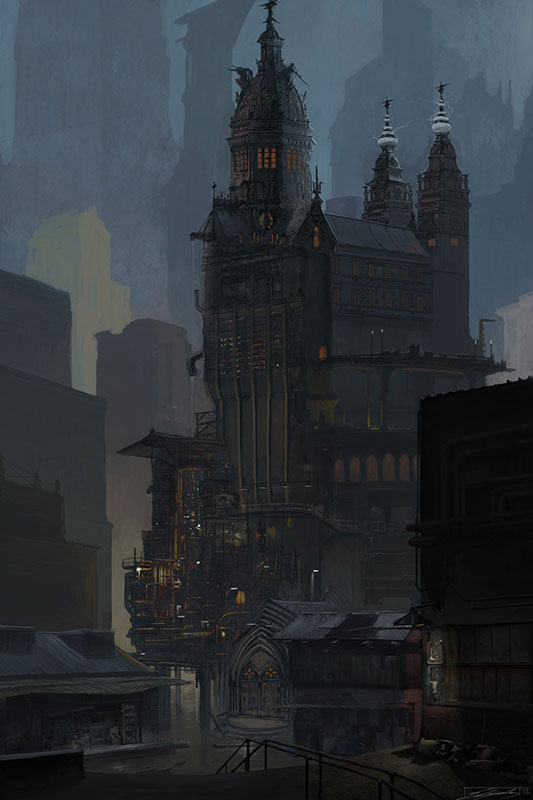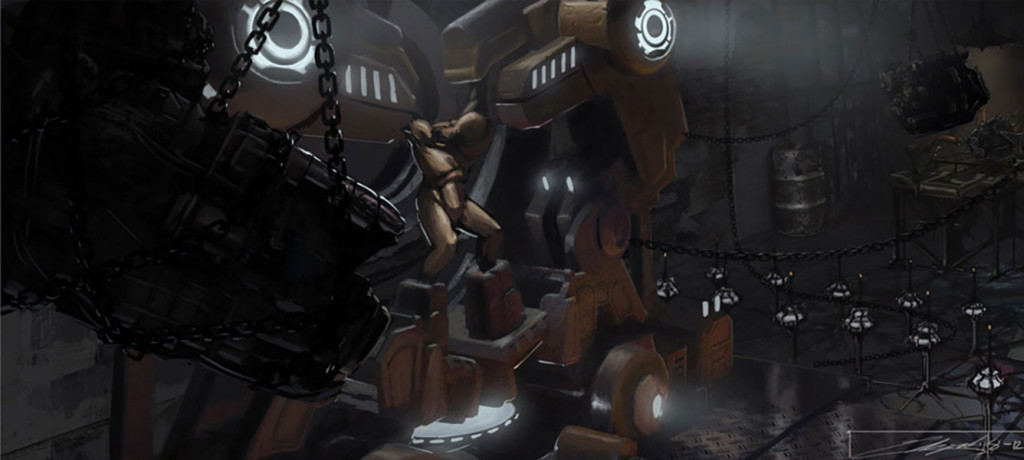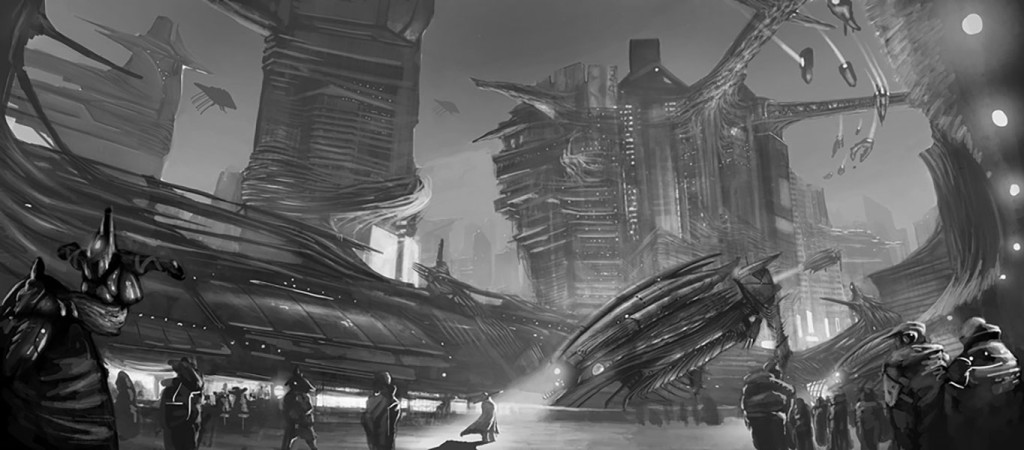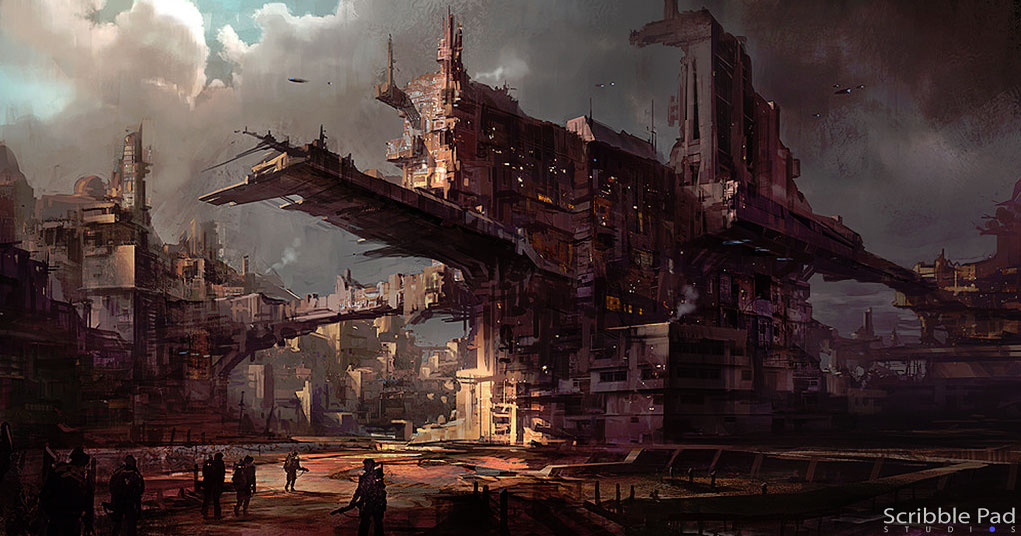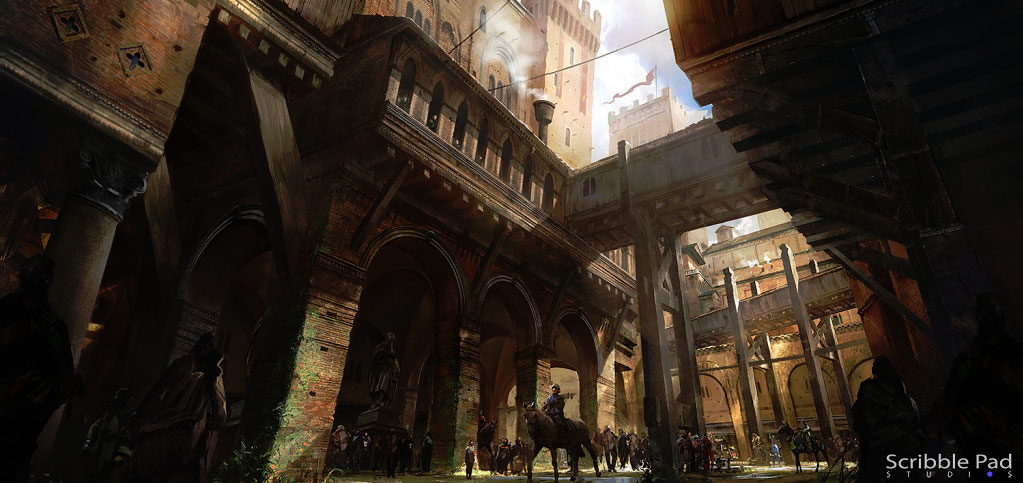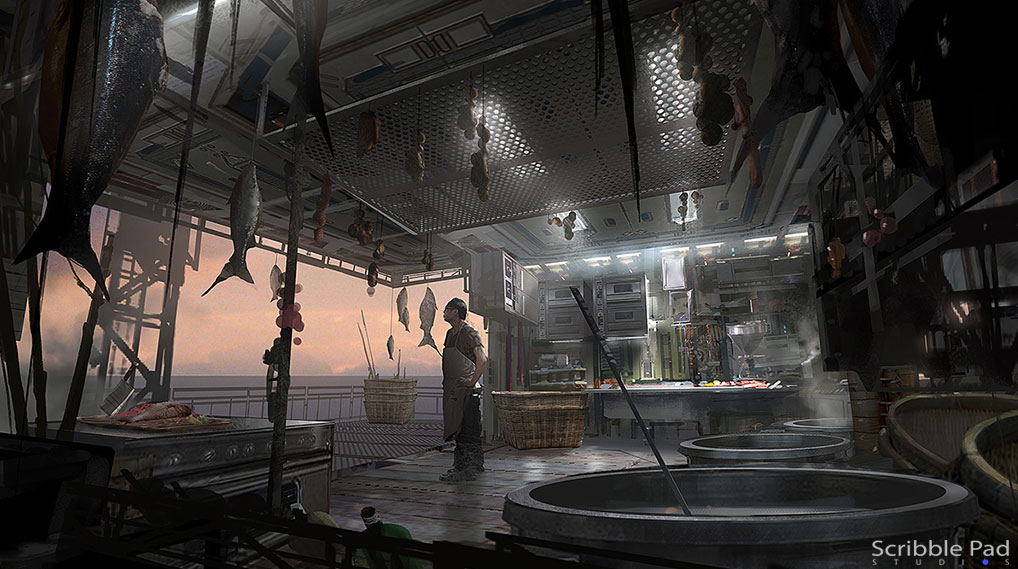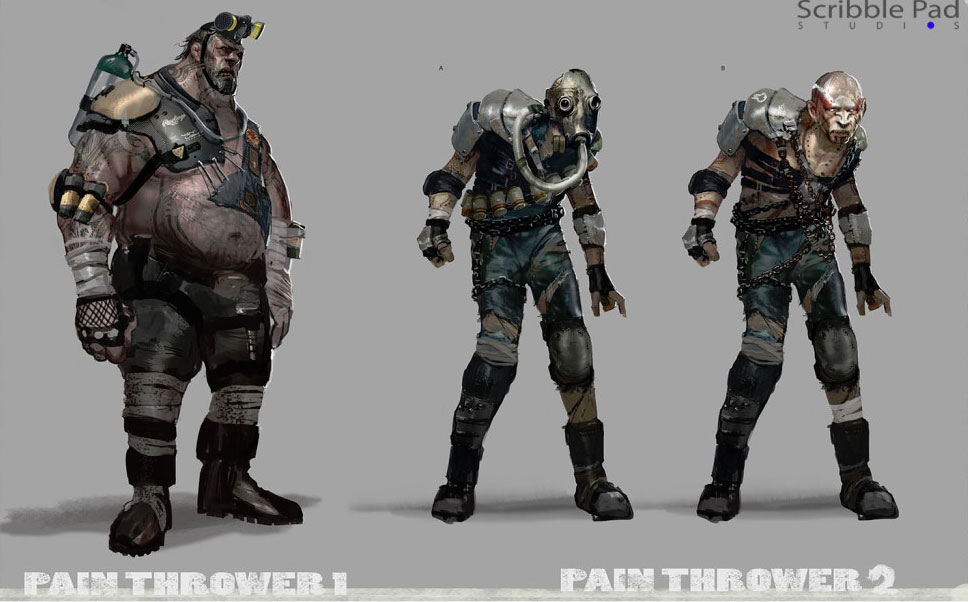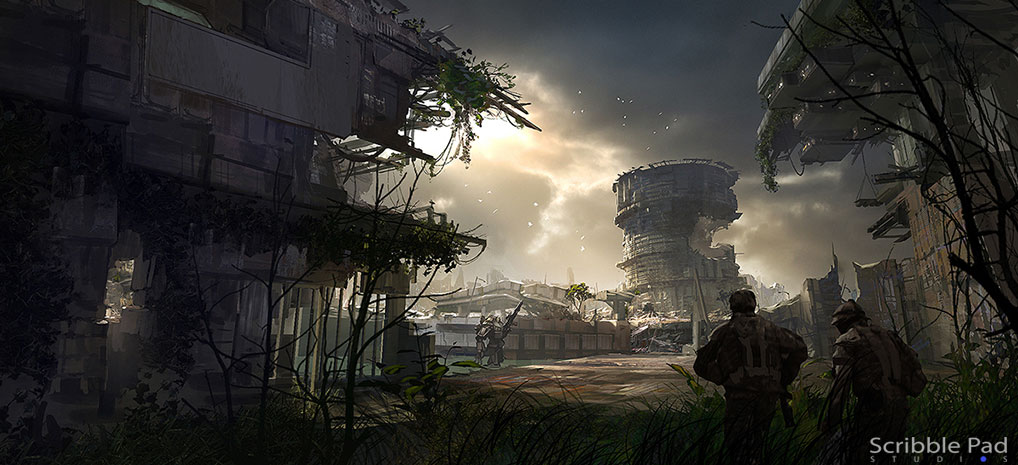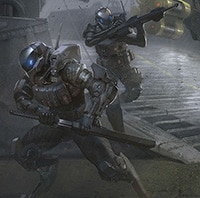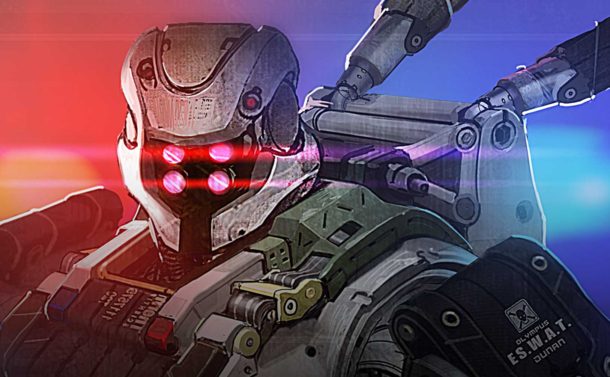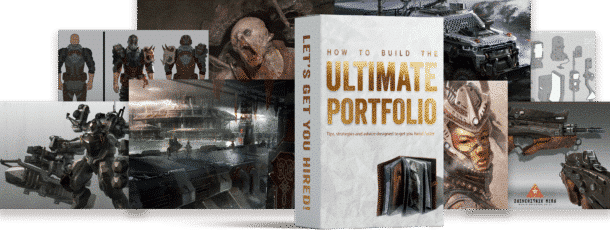
by Eliott Lilly | Jul 15, 2015 | Interviews
PHIL WOHR IS A PROFESSIONAL CONCEPT ARTIST WITH OVER A DECADE OF EXPERIENCE WORKING IN THE VIDEO GAMES INDUSTRY.
Website
http://artofphilwohr.blogspot.com/
Phil Wohr’s current portfolio examples
If you haven’t already, be sure to check out Part 1 of this interview, where we asked him specific questions about what it’s like to be a concept artist in the entertainment industry, dispel a few common misconceptions that aspiring artists tend to have about the field, and discuss his educational background. Here, in part two of this interview, we ask Phil Wohr specific questions about building his portfolio, marketing himself in the industry and more. Here’s what Phil Wohr had to say:
HOW VALUABLE WILL GETTING AN EDUCATION FROM A UNIVERSITY OR COLLEGE BE FOR ASPIRING ARTISTS WHO WANT TO BREAK INTO THE ENTERTAINMENT INDUSTRY? SHOULD THEY ATTEND A REGULAR SCHOOL WITH A LIBERAL ARTS PROGRAM? A 4 YEAR ART SCHOOL? OR JOB SPECIFIC TRADE SCHOOL (LIKE GNOMON, CONCEPT DESIGN ACADEMY, FZD, ETC). OTHER?
If you can afford to go to art school, then that’s awesome (it’s very expensive). For concept art I think your portfolio is really what is going to matter most. I would almost recommend something like an art atelier school, or just a dedicated art program. At the end of the day having a degree might get you paid a bit more, but if someone comes in with a significantly better portfolio (regardless of their education), the company will probably hire them.
Personally, I’m glad I went to school because it taught me about other parts of the pipeline and exposed me to things that I couldn’t have experienced on my own.
The one thing I will say loudly is that if you can’t afford to go to school, don’t let that stop you. There is so much information available online that will educate you without ever having to go to a big name school. If you go that route try to befriend some artists or join a community who can teach you some things along the way.
WERE YOU DISCIPLINED AND/OR FOCUSED IN SCHOOL? WHAT WAS YOUR ROUTINE? HOW MUCH TIME DID YOU SPEND ON YOUR HOMEWORK VS. SOCIALIZING?
I definitely spent a lot of time creating art while in school. I used to have this goal of having a “perfect” day of creating art all day long. Then trying to string those days together. It never really fully worked out, but the idea kept me working.
It’s pretty impossible not to get distracted sometimes, but I definitely spent a lot of long days and late nights creating art — especially in portfolio classes.
I spent a fair amount of time socializing too though, but socializing with other artists is still helpful, I guess. I didn’t go to a lot of parties, or spend tons of time doing that kind of stuff. I probably spent about 10 hours each day working/attending class— you have to work hard in school because it’s the foundation for things to come.
BESIDES THE FUNDAMENTAL ART CLASSES (PERSPECTIVE, ANATOMY, COLOR THEORY, ETC.), WHAT CLASSES DO YOU THINK STUDENTS SHOULD TAKE IN COLLEGE? ARE THERE ANY CLASSES YOU TOOK WHICH SURPRISINGLY HELPED YOU MORE THAN YOU THOUGHT THEY WOULD?
I can’t really say that there was some non mandatory class I took that highly rasied my own skill level to a surprising degree. But I have seen that people who practice cast drawing seem to really improve their abillities a lot. It sort of forces you to focus on a tight quality control and a high range of midtone values. So I’d just say if you have a chance to take a course on cast drawing I bet it would help you quite a bit.
Also, this isn’t a class, but I would recommend that students practice still life drawings, and try to make them highly accurate. It’s a great way to improve your understanding of lighting, reflections, and materials, and you can do it at home for free. And to clarify I mean create a little still life, light it, and paint that digitally or traditionally. It’s more beneficial than painting from a flat photo because you can get a better look at what is going on and understand it at a higher level by seeing it in 3D space and not just mimicking a flat picture.
DID YOU HAVE ANY OUTSIDE HELP PUSHING YOU ALONG WITH YOUR TRAINING? FROM A MENTOR, PASSIONATE TEACHER? FAMILY? FELLOW STUDENT?
I didn’t have like one person specifically that was a mentor but rather a lot of other artists at school that were all pretty inspiring.
I made a lot of friends in college and we all pushed each other and talked about tips and that sort of stuff.
That’s one thing that is really nice about being in an art school. Sometimes you can learn as much from the other students as you would from the instructors or the curriculum.
DID YOU STUDY OR TAKE ADDITIONAL CLASSES/ LESSONS, OUTSIDE OF SCHOOL? IF SO, HOW FREQUENTLY?
A lot of the studying I was doing outside of school was really just me practicing or watching tutorial videos, drawing still life, and that sort of thing. There are so many training tutorials available. Especially now, even if you don’t have time or money to take extra lessons, that doesn’t mean you can’t keep learning.
This concludes Part 2 of our interview with Phil Wohr. In Part three, we discuss with Phil how he marketed himself coming out of college, how he landed his first job and more. All images used with permission by the artist. ©Phil Wohr
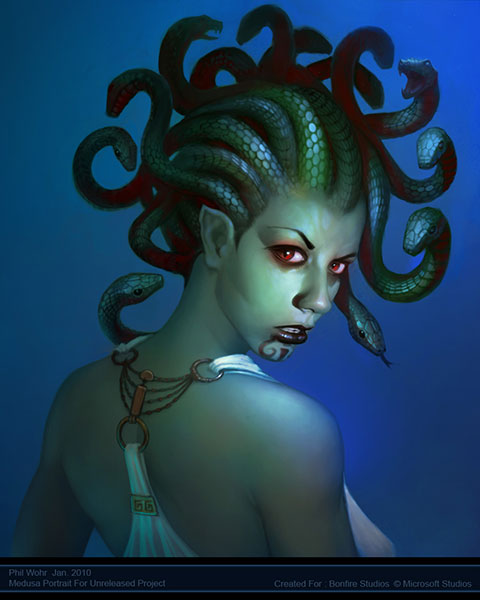
by Eliott Lilly | Jul 15, 2015 | Interviews
PHIL WOHR IS A PROFESSIONAL CONCEPT ARTIST WITH OVER A DECADE OF EXPERIENCE WORKING IN THE VIDEO GAMES INDUSTRY.
Website: http://artofphilwohr.blogspot.com/
Phil Whor’s current portfolio examples
In this first part of the interview, we asked Phil Whor specific questions about what it’s like to be a concept artist in the entertainment industry, dispel a few common misconceptions that aspiring artists tend to have about the field, and discuss his educational background. Here’s what he had to say:
HOW OLD WERE YOU WHEN YOU DECIDED TO COMMIT TO BEING AN ARTIST AND WHAT WERE YOUR MOTIVATIONS/ INSPIRATIONS?
I liked creating art from a very young age,but I decided to seriously pursue art as a career when I was in middle school. I had seen artwork done for platformer games and was really interested in going down that path. Later in high school someone had visited one of my art classes who was in the industry and that further motivated me to continue my efforts. A friend of mine who was also into creating art, had a Warhammer 40k tabletop book that had some pretty awesome art in it and we used to make our own card art games and stuff inspired by that book.
WHAT DO YOU LIKE MOST ABOUT YOUR JOB? WHAT DO YOU FEEL ARE THE BIGGEST CHALLENGES?
I really like the flexibility, the creative outlet, and working with other people to achieve an artistic vision that’s larger than what’s possible for a single person to create.
One of the biggest challenges of the job for me is being faced with those tasks that are less interesting (like making icons or website stuff etc.). I’ve learned to regard these types of tasks as the “work” part of the job, which helps me appreciate the interesting ones more.
An even more challenging part of this job, is finding the right job/employer or working environment since each company manages their artists differently. Some places can make employees feel “used” or just put you in situations where you aren’t really getting to do either the kind of work you want, or aren’t getting to collaborate in a relaxed environment.
ARE THERE ANY MISCONCEPTIONS YOU THINK STUDENTS TEND TO HAVE ABOUT CONCEPT ART AND ILLUSTRATION, THE JOB AND/ OR THE CAREER THAT YOU WISH TO SET STRAIGHT?
A lot of what you work on will be dictated to you. You still get to be creative but sometimes the things you have to concept isn’t always exciting or will generate portfolio pieces. Don’t think you are going to get in this industry and only make awesome drawings of characters all day, every day. Some people do get jobs like that, but most don’t. Studios have a really wide variety of things needing to be created, so you might get some awesome character piece one day, but then the next, you might be making tiny icon images for spells, or concepting things like crates and barrels. As long as the job has a decent balance of stuff that’s helping your career, then it’s important to keep a good attitude about it.
CAN YOU SHARE A PERSONAL STORY, ABOUT A HARD LESSON THAT YOU LEARNED, THAT COULD HAVE BEEN AVOIDED, HAD YOU BEEN BETTER INFORMED?
I had a job where I was working on a project that was really not exciting to me, and I was still pretty new to the industry. I did some complaining about what I was working on because I thought every one else felt the same about not liking the project. Well later that week I got called into the art directors office because it turned out some people on the project really liked what we were doing a lot. I hadn’t been very sensitive to the fact that there were other people that liked the style I didn’t. I apologized and let them know I had just thought I was commiserating and didn’t realize I was upsetting some people. After that I tried much harder to keep a good attitude about things and they liked the change so it worked out.
Every one has different taste so just try to be sensitive so as not to accidentally insult someone. Always try to keep a good attitude about any work you do.
This concludes Part 1 of our interview with Phil Wohr. In Part two, we discuss with Phil his Dos and DONTs of portfolio building, how he branded and marketed himself in the beginning, and much more. All images used with permission by the artist. ©Phil Whor.
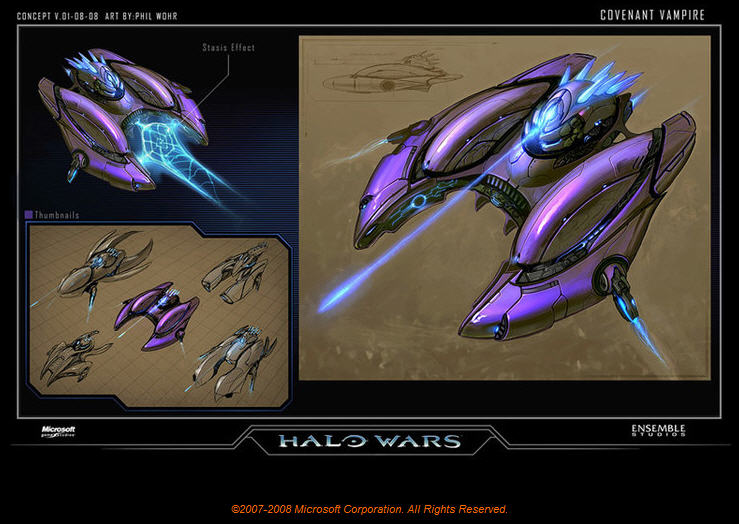
by Eliott Lilly | Jul 15, 2015 | Interviews
PHIL WOHR IS A PROFESSIONAL CONCEPT ARTIST WITH OVER A DECADE OF EXPERIENCE WORKING IN THE VIDEO GAMES INDUSTRY.
Website
http://artofphilwohr.blogspot.com/
Phil Wohr’s current portfolio examples
If you haven’t already, be sure to check out Part 1 and Part 2 of this interview, where we asked him specific questions about what it’s like to be a concept artist in the entertainment industry, dispel a few common misconceptions that aspiring artists tend to have about the field, and discuss his educational background. Here, in part two of this interview, we ask Phil Wohr specific questions about building his portfolio, marketing himself in the industry and more. Here’s what Phil Wohr had to say:
WHAT ARE YOUR LIST OF DOS AND DON’TS TO BUILDING A STRONG PORTFOLIO?
When building a portfolio it is important to show your strengths and your range. It is equally important to remove weaker pieces that no longer represent your abilities.
Also tailoring a portfolio towards a specific position can be helpful. Most of these companies like to see that you already have pieces in your portfolio that would be acceptable as concepts in their game, or are at least close. So, for example, if you want to work for a company that does cartoony style stuff, your portfolio should have at least some of that in it. Have others look at your portfolio and help you decide what pieces are bringing it down. It’s much better to have a portfolio with 20 strong pieces than one with 20 plus 5 pieces that aren’t as good. Those weaker pieces will make people think that you are at a lower overall skill level. Also, even if you have 100 strong pieces, try to bring it down to a manageable number so the other person can get through it. If there are too many, they’ll probably only look at half of them and those might not be the strongest ones.
IF YOU COULD GO BACK AND RE-EVALUATE YOUR OWN GRADUATING PORTFOLIO, HOW WOULD YOU DO? WHAT DO YOU THINK MADE YOUR PORTFOLIO STAND OUT? WHAT COULD HAVE BEEN DONE BETTER?.
I probably had more work than I needed in some areas, I think I might reduce the total number of pieces in favor of a more concise read.
From what I was told at the time, my portfolio stood out as being fairly “broad” in terms of showing characters, vehicles, weapons, environments while still maintaining quality.
Looking back, my environments could have been a lot stronger, but you really can’t expect to be a master of all things, especially fresh out of school — and for me a 2 year school.
HOW DID YOU HUNT DOWN YOUR FIRST JOBS IN THE INDUSTRY? FRIEND/ WORD OF MOUTH/ REFERRAL? DID YOU APPLY ONLINE THROUGH THE COMPANY? ON A JOB FORUM/ HEAD HUNTER/ ETC.
My first job in the industry was at TKO Software in the Dallas area. I got the job because one of the artists there was a former art institute graduate who would watch the forums. At the time, he was impressed with my ability to create concept art and also 3D art at a reasonably high level for a student.
HOW DID YOU MARKET YOURSELF COMING OUT OF COLLEGE/ FIRST STARTING OUT? WHAT DIFFICULTIES DID YOU HAVE TO OVERCOME?
I probably didn’t do a great job of marketing myself because I was already interning at TKO before I got out of school. I really didn’t surmount any major marketing difficulties as I got really lucky getting picked up so early.
I will offer this piece of advice for students:
When presenting art, especially with physical, printed portfolio; neatness is important. You don’t want an employer opening your portfolio and it looks all sloppy with a bunch of notes and crap falling out. When you are making a piece of art, think about how it will look in a portfolio. As you finish each piece, try to make it presentation worthy by giving the image a label and a simple background. This helps sell your work as a “professional” and will save you a bit of headache later.
WHERE DO YOU CURRENTLY MARKET YOURSELF? WHAT GIVES YOU THE MOST RETURN ON YOUR INVESTMENT (YOUR WEBSITE, SOCIAL MEDIA, WORD OF MOUTH?, ETC.)
I really don’t market myself a whole lot. I have a free blogspot account that gets a fair amount of attention. If you google my name it is the first thing that comes up and I think working on projects like borderlands and halo wars that people actually were searching for helped. I’ve found that once you get out of school, the projects you work on tend to draw their own attention as long as there is a place where people can search for related art.
When I’m looking for work though, I rely mostly on word of mouth and “who you know”. Almost every job I’ve gotten after Gearbox was through knowing someone and having an “in” at the company.
The industry is super small, so once you’ve been in it a while, the people who you’ve worked with tend to move around, and next thing you know you have 1st and 2nd party connections all over the place.
It can work in reverse if you upset people or are hard to work with, so play nice and check your ego at the door.
DO YOU THINK THE INDUSTRY IS VEERING TOWARDS A MORE CONTRACT AND OUTSOURCING MODEL FOR ARTISTS?
I think it will always be more or less half and half. I believe there will be a continued trend of large studios “ballooning up” to meet ship dates, and then shrinking back down once the project has shipped. I think outsourcing and freelancing fills those needs without forcing companies to make big hires and then big layoffs.
Personally, I still prefer having a salaried position to pure freelance. I might take the occasional side job, but I try to avoid larger commitments because I like to have time for personal work.
This concludes our interview with Phil Wohr. if you woudl like to read more, check out Phil’s Words Of Wisdom. All images used with permission by the artist. ©Phil Wohr
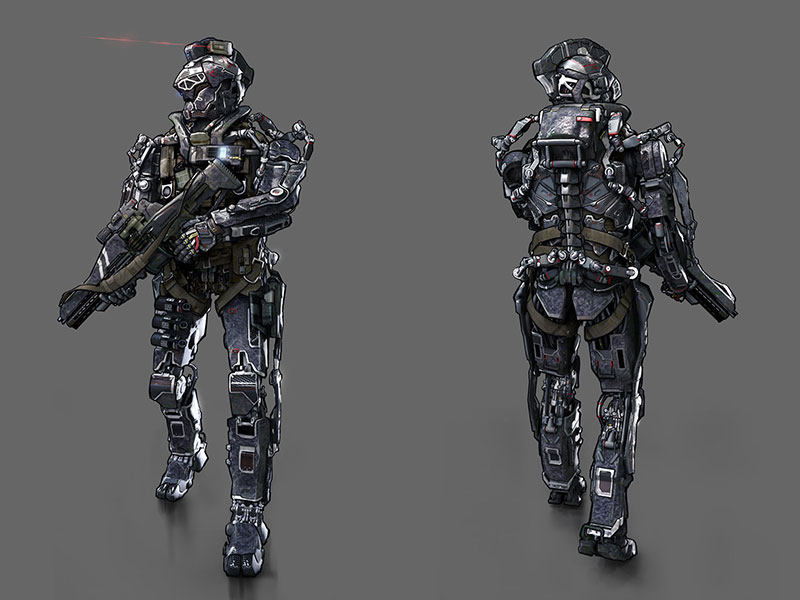
by Eliott Lilly | Jun 29, 2015 | Interviews
Elijah McNeal is a concept designer working in the Entertainment Industry with an emphasis in character design, hard surface design, and illustration.
Website
http://www.artstation.com/artist/el1j4h
http://el1j4h.deviantart.com
Elijah McNeal’s current portfolio examples
If you haven’t already, be sure to check out Part 1 of this interview, where we asked him specific questions about what it’s like to be a concept artist in the entertainment industry, dispel a few common misconceptions that aspiring artists tend to have about the field, and discuss his educational background. Here, in part two of this interview, we asked Elijah McNeal specific questions about, building his portfolio, marketing himself in the industry and more. Here’s what he had to say:
WHAT ARE YOUR LISTS OF DOS AND DON’TS TO BUILDING A STRONG PORTFOLIO?
Show what you’re interested in doing (Could be sci-fi, fantasy, post-modern, etc.). I’ve worked on titles across all spectrums, but I target Sci-Fi because it’s my peak interest. From there, I would say: find your target (painting characters, hard surfaces, and so on). If you’re going to go general you need to be even harder on yourself because some studio’s feel they want someone who does one thing really well over someone who does many things decently. So you need to do all things well if you go for general design.
IF YOU COULD GO BACK AND RE-EVALUATE YOUR OWN GRADUATING PORTFOLIO, HOW WOULD YOU DO? WHAT COULD HAVE BEEN DONE BETTER?
I would have stuck with less rendered work, and would have showed more of my process. It’s important to show how I got to where I did, and to indicate why I made those decisions. I still have some old ideas with potential that I revisit as my skills improve. I highly recommend any aspiring artist do this as well.
HOW DID YOU HUNT DOWN YOUR FIRST JOBS IN THE INDUSTRY?
A wonderful instructor of mine knew the Creative Director on the Star Citizen project. I had insatiable work ethic, was growing quickly, and accepted feedback willingly. So he recommended me.
HOW DID YOU MARKET YOURSELF COMING OUT OF COLLEGE/ FIRST STARTING OUT?
I didn’t have to; I was incredibly lucky. And I think my circumstance illustrates that close or from afar, there are people watching and looking for that right person to handle a task they have.
WHERE DO YOU CURRENTLY MARKET YOURSELF? WHAT GIVES YOU THE MOST RETURN ON YOUR INVESTMENT (YOUR WEBSITE, SOCIAL MEDIA, WORD OF MOUTH?, ETC.)
I still struggle with marketing myself today although I have gotten better. Seeking out studios, making friendships, going to events when possible, interviews, etc. Get to know your brothers and sisters and be generous. People can be incredibly helpful when you do the same.
DO YOU THINK THE INDUSTRY IS VEERING TOWARDS A MORE CONTRACT AND OUTSOURCING MODEL FOR ARTISTS?
More contract and more studio outsource. Freelancing seems to be sharply veering for paintings and much less for design unfortunately.
WHAT’S THE MOST IMPORTANT PIECE(S) OF ADVICE YOU CAN OFFER STUDENTS THAT YOU WISH THEY HAD TOLD YOU IN ART SCHOOL?
Work hard and focus on what you love doing. Do what it takes to get better, if you’re interested in breaking into be a character concept artists, but props are in demand – either get super good at characters or do props well enough and make the fights for characters another day, but don’t settle into a field you don’t want to go into. A lot of guys do and it can take them a while to break out of it and some burn out before they reach that transition.
ASSUMING THAT THERE ARE NO SPACE-TIME PARADOX’S INVOLVED… IF YOU COULD GO BACK IN TIME 10 YEARS (KNOWING WHAT YOU KNOW NOW), WHAT WOULD YOU TELL YOUR YOUNGER SELF TO DO DIFFERENTLY?
Draw more, keep on track, you’ll do well.
This concludes our interview with Elijah McNeal. All images used with permission by the artist. ©Elijah McNeal.
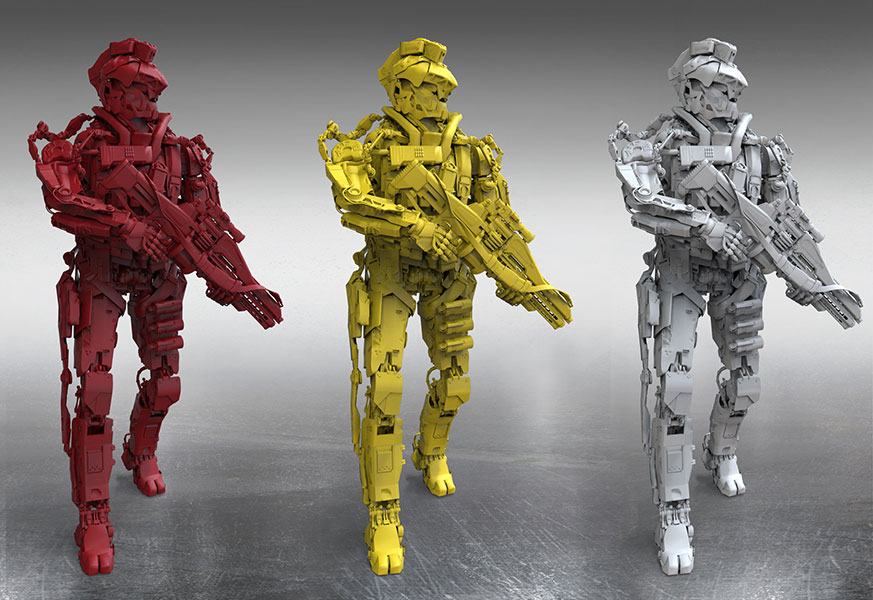
by Eliott Lilly | Jun 29, 2015 | Interviews
Elijah McNeal is a concept designer working in the Entertainment Industry with an emphasis in character design, hard surface design, and illustration.
Websites:
http://www.artstation.com/artist/el1j4h
http://el1j4h.deviantart.com
Elijah McNeal’s current portfolio examples
In this first part of the interview, we asked Elijah McNeal specific questions about what it’s like to be a concept artist in the entertainment industry, dispel a few common misconceptions that aspiring artists tend to have about the field, and discuss his educational background. Here’s what he had to say:
HOW OLD WERE YOU WHEN YOU DECIDED TO COMMIT TO BEING AN ARTIST? WHAT WERE YOUR MOTIVATIONS/ INSPIRATIONS?
I would draw almost non-stop when I was a kid. I had learned about concept artists for the first time while reading the Art of Starsiege. I figured it would be a fun “job” for me so upon leaving the Navy, I decided to go for it.
WHAT DO YOU LIKE MOST ABOUT YOUR JOB? WHAT DO YOU FEEL ARE THE BIGGEST CHALLENGES?
Talking with excited directors and teams, when I’m really jamming along with the ideas, [is what I like the most about the job, but] keeping neutral is a challenge even for me some days.
ARE THERE ANY MISCONCEPTIONS YOU THINK STUDENTS TEND TO HAVE ABOUT CONCEPT ART AND ILLUSTRATION, THAT YOU WISH TO SET STRAIGHT?
Appropriation I think. Ripping apart photos and slamming them together versus actually considering the design and also style. [Don’t take] function to the point the designs become redundant and less fun- try to make it as fun as you can. It doesn’t have to really work, it just needs to be believable. Even if it doesn’t work out, your enthusiasm will be appreciated.
I think style is underestimated. It doesn’t have to be grand or boisterous, but man it sure helps when it is. It gets the other guys motivated.
CAN YOU SHARE A PERSONAL STORY, ABOUT A HARD LESSON THAT YOU LEARNED THAT COULD HAVE BEEN AVOIDED, HAD YOU BEEN BETTER INFORMED?
Focus on what you do and what you love doing. Help out in other areas, but don’t let yourself get overwhelmed and bite off more than you can chew. Either you’ll fail, or you’ll burn out succeeding and find your discipline fraying.
Elijah McNeal’s early portfolio examples
HOW VALUABLE WILL GETTING AN EDUCATION FROM A UNIVERSITY OR COLLEGE BE FOR ASPIRING ARTISTS WHO WANT TO BREAK INTO THE ENTERTAINMENT INDUSTRY?
Education is education. I don’t look at it as what helps to get a job, as much as how can that education enrich myself and enhance my skills. Executing those skills is where the whole job thing comes in. You don’t need school to get a job, but I think it can round you out. You’ll also make contacts:I got my first job by a recommendation from a instructor.
WERE YOU DISCIPLINED AND/OR FOCUSED IN SCHOOL?
I was a grinder. At the start I wanted to do everything as well as possible. Near the end I started doing the minimum and using as much time as I could on design and challenging that skill.
BESIDES THE FUNDAMENTAL ART CLASSES, WHAT CLASSES DO YOU THINK STUDENTS SHOULD TAKE IN COLLEGE?
Drawing! Drawing! Drawing! Sculpture and Animation.
DID YOU HAVE ANY OUTSIDE HELP PUSHING YOU ALONG WITH YOUR TRAINING? FROM A MENTOR, PASSIONATE TEACHER? FAMILY? FELLOW STUDENT?
Yep. I had some teachers who at first warned against going into concept art, but eventually those turned around and plenty were initially supportive. My family was of course supportive and loving. I’m a super lucky guy.
DID YOU STUDY OR TAKE ADDITIONAL CLASSES/ LESSONS, OUTSIDE OF SCHOOL? IF SO, HOW FREQUENTLY?
I did two sculptures classes while working in the industry; One with Furio Tedeschi and another with Peter Konig. I had gotten a bit rusty from so much drawing and illustration. Ultra helpful and lots of knowledge to be gained.
This concludes Part 1 of our interview. In Part 2, we discuss with Elijah McNeal his Dos and DONTs of portfolio building, how he branded and marketed himself in the beginning, and much more. Head on over to continue reading.
All images used with permission by the artist. © Elijah McNeal
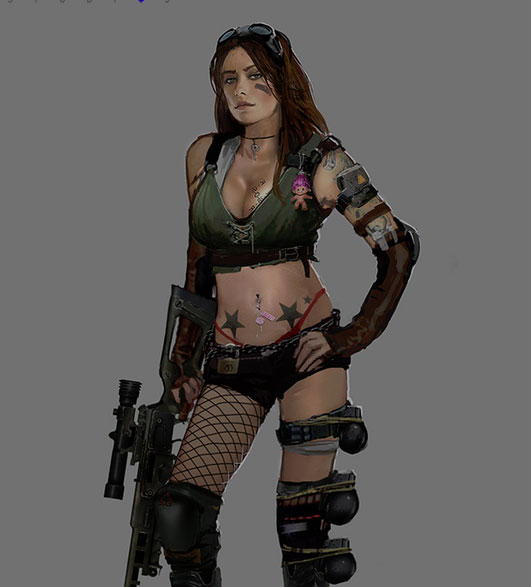
by Eliott Lilly | Jun 24, 2015 | Interviews, Words of Wisdom
JAMES PAICK IS THE FOUNDER AND CREATIVE DIRECTOR AT SCRIBBLE PAD STUDIOS WITH OVER 15 YEARS OF DESIGN EXPERIENCE.
Scribble Pad Studios under the direction of James Paick has been responsible for creating some of the most memorable designs and moments in entertainment design. James has developed many projects within the gaming, film, theme park, illustration, entertainment space and advertising fields.
Websites:
www.ScribblePadStudios.com
www.JamesPaickArt.com
www.BrainstormSchool.com This is a school specifically focused on design and job placement for students in the video game industry.
Educational background
- Art Center College of Design in Pasadena, Ca
- Illustration Entertainment Design Focus Fall 2004
- Bachelors Degree in Fine Art
Number of years in industry
- 12+ years in Concept Design / Art Direction,
- 8+ years Art Educator
Shipped titles/ Projects worked on: League of Legends, the Uncharted series, Titanfall, Call of Duty, Medal of Honor, Transformers 4, Maze Runner, Universal Studios Singapore, Magic the Gathering, Shadow of Mordor, and many many more
James Paick/ Scribble Pad Studios’ current portfolio examples
WHAT IS THE MOST IMPORTANT PIECE(S) OF ADVICE YOU CAN OFFER STUDENTS THAT YOU WISH THEY HAD TOLD YOU IN ART SCHOOL?
Never allow yourself to say, I wish I tried harder
I was exposed to this quote during my youth, and living by it really allowed me to push myself to my limits as much as I could.
ASSUMING THAT THERE ARE NO SPACE-TIME PARADOXES INVOLVED IF YOU COULD GO BACK IN TIME 10 YEARS (KNOWING WHAT YOU KNOW NOW), WHAT WOULD YOU TELL YOUR YOUNGER SELF TO DO DIFFERENTLY?
I would have to say I would tell myself to be curious, ask questions, and have fun!
WHAT DOES “SUCCESS” MEAN TO YOU AND, WHAT ARE AT LEAST THREE THINGS YOU NEED TO DO IN ORDER TO ACHIEVE IT?
To me, success means: effective problem solving that goes above the clients expectations. Three things to do are: listen, problem solve, and execute. This is what every concept artist in the commercial industry should focus on and is something I try to do when working on projects for games like League of Legends.
Do you enjoy playing League of Legends? If so, you might be interested to know that you can purchase a League of Legends account to help you get ahead of the competition. For more information, head to unrankedlolaccounts.com. There are a number of unique benefits when purchasing different LoL accounts, so make sure to do some research before committing to a decision about whether to buy an unranked or ranked lol account. Once you have created or purchased your account, you may find that your rank doesn’t improve quickly enough. Don’t worry, as this is very common, especially in ambitious players. To help you reach your desired rank, you could look into ways of boosting – when it comes to league of legends boosting, www.chiboost.net is the best place to go.
If you would like to read more from James Paick, check out his full interview. In it, we ask him specific questions about what it is like to be a concept artist in the entertainment industry working on projects for games such as League of Legends, dispel a few common misconceptions that aspiring artists tend to have about the field, discuss his educational background, how he markets himself in the industry and more.


